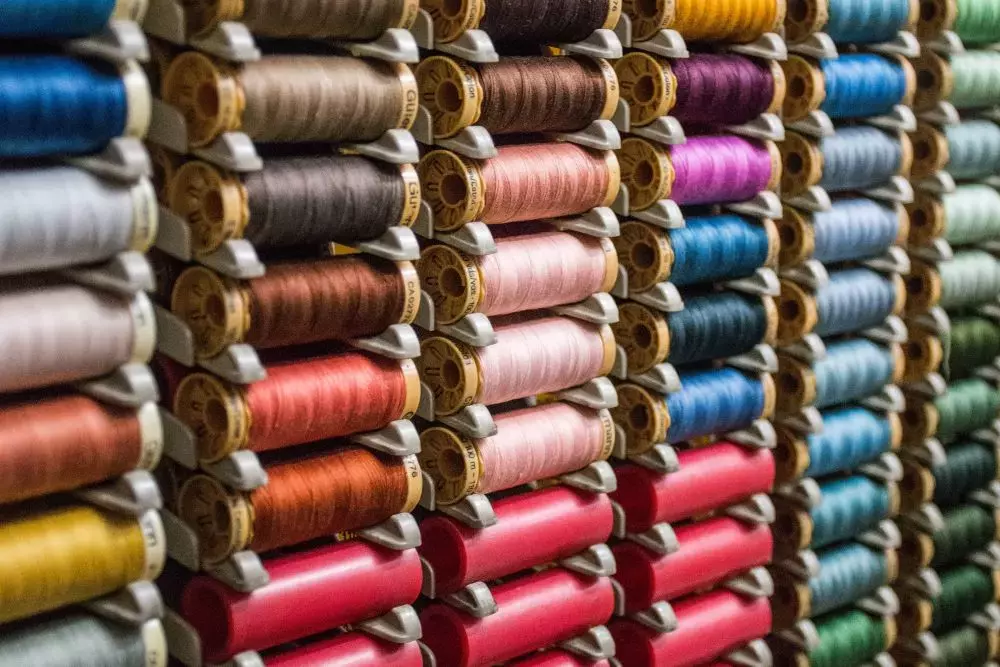How to Choose the Best Thread for Quilting
2020-02-14
You don’t just want to choose a good thread; you want to select the best thread. The perfect thread to hold your project together, especially when that project is a quilt that you're going to pour hours of hard work into before it's completed.
Quilting can be a fun hobby, but many people have made it a full-time profession or a side-job. With sites like Etsy, eBay, and even Amazon, it's easier than ever to sell handmade craft items. Now skill will only get you so far when it comes to creating a high-quality quilt that you’d be proud to sell or gift to someone.
It would be best if you had the right tools and materials. Your thread is just as crucial as your fabric and your quilting machine.
Choosing Your Thread
It might not seem like the thread is really all that special. I mean, we can all spend hours going through the fabric to find just the right material and pattern. But, how long do you spend in the thread section? We'd guess that most quilters spend less than five minutes looking at nearly endless thread options. Here's what you need to consider so that next time you grab a spool, you can be sure that it does the best job possible.
What to Look For
Weight – This element is critical because the weight of the thread will determine if it can hold all three layers of fabric together or not. You will likely use different weights through different parts of the quilt.
Keep in mind that the higher the number, the lighter weight the thread.
Color – Not all of the best brands deliver a wide variety of colors, but when it comes to quilting, you can't compromise. A quilt is a blanket, yes, but it's an art piece and a statement first. So if you're working along a navy square, you can't very well use an olive thread. You also don't want to be swapping thread for each square across different brands or weights.
Although color doesn’t seem exceptionally important, be sure to choose a thread in a brand and weight that has a large color variety.
Durability – There's nothing more critical to a quilter than durability. Quilts should last for decades and through multiple generations. You go out of your way to find batting that will maintain its quality, and you should do the same for your thread. It's true, many quilt projects don't showcase the thread very much, but if the quilt starts falling apart, people will notice.
Best Thread for Machine Quilting
Cotton is almost always the go-to option, and for machine quilting, you should opt for a 50-weight cotton thread. You can use this same thread type for sewing together separate pieces, making your squares, and for finishing your quilt.
Best Thread for Hand-Sewn Quilting
Now, if you're hand sewing your quilt, you'll need something more substantial, which means a smaller number. You'll still want a cotton thread because of its outstanding durability, range of color, and variance in weight. However, for hand sewing, you'll want to choose a 28-weight cotton thread. It’s sturdy and can withstand the pulling and tugging that comes with hand sewing a quilt.
Best Thread for Embroidery
Embroidery is always a fun element to a quilt, and it gives it that unique flare. Now, cotton thread is not always the favorite for embroidery, but keep in mind that you want to keep your materials as consistent as possible. When using an embroidery machine, you can get away with using a 40-weight cotton thread. If you’ll sew by hand or are using an industrial embroidery machine that allows for the freehand design, you want a very high weight (low number) cotton thread or to explore cotton-poly options.
Ultimately, you should stick exclusively to a cotton thread, and you should probably use 50-weight for everything except hand sewing or embroidery. Knowing which thread the best is is a great start, but you'll have to explore a few different brands to find what you prefer.
Ready to make your quilt? GoldStar Tool has a variety of quilting machines to choose from, and if you need help finding a machine that fits your needs, contact us so we can help.





